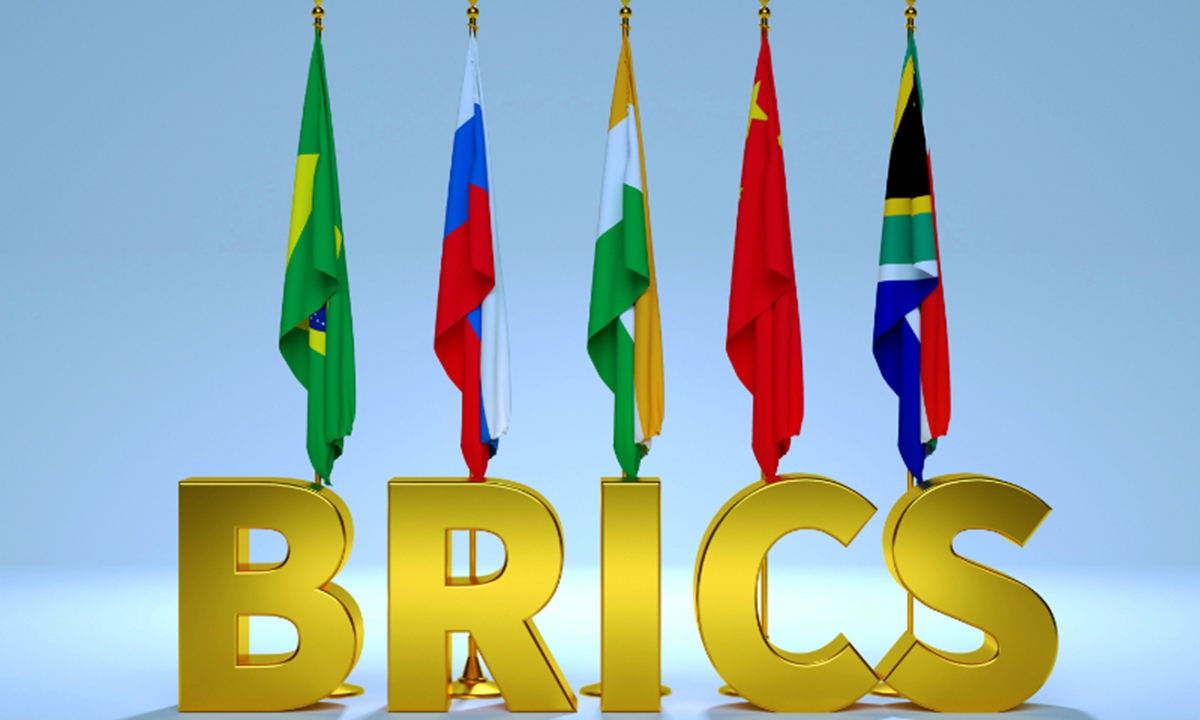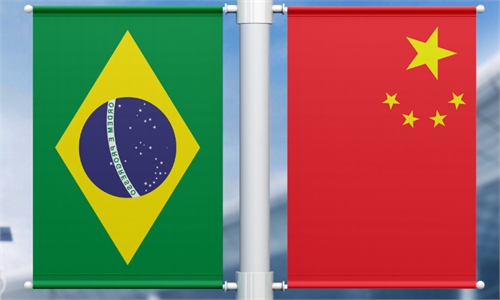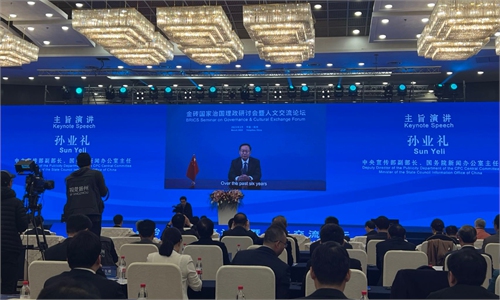BRICS currency 'plausible alternative' to dollar hegemony
Frustration toward US weaponization of greenback behind local currency settlement deals

BRICS Photo:VCG
Efforts by countries to replace the US dollar in international trade will reach a new high when BRICS nations discuss the feasibility of introducing a common currency at a summit in South Africa later this year, Chinese experts said on Sunday, noting that the move can be a fresh blow against the dollar's hegemony.
The BRICS group of nations will discuss the issue, which is likely be on the agenda of a meeting of the nations' heads of state in Johannesburg on August 22, Bloomberg reported recently, citing the foreign minister of South Africa.
The BRICS group of nations - Brazil, Russia, India, China and South Africa - accounts for one-third of global economic output, and their combined output is larger than the Group of Seven economies by some measures.
Experts said the desire for a currency that offers better accessibility and fairer treatment in international trade is the main objective for BRICS nations. They pointed out that the US dollar, used as a tool for the US to exercise international hegemony, has caused great uncertainty for the recovery of the world economy.
Zhou Yu, director of the Research Center of International Finance at the Shanghai Academy of Social Sciences, told the Global Times on Sunday that the discussion is likely to be a probing effort by BRICS countries for a long-term goal of a currency unit.
"Despite the daunting difficulties such an effort faces, it is not entirely impossible for these nations to have such a currency unit," Zhou said.
The creation of a unified currency for a group of countries usually takes a long time and requires years of cooperation, and eventually means phasing out local currencies, Zhou said, taking the birth of the euro as an example.
"However, currently the effort by BRICS nations seems to be focused on devising a currency unit used specifically to settle cross-border trade, rather than a currency unit to replace other local currencies, which reduces the difficulty of such efforts and increases its plausibility," Zhou said.
The call from South Africa came amid a long list of calls and moves from BRICS countries or other emerging economies to shake off their reliance on the dollar. Countries are affected by US interest rate hikes and geopolitical conflicts as global trade priced in dollars is impeded.
The freezing of Russian assets by the US and EU has also prompted countries to work on alternatives to treating the dollar as a reserve currency.
Roughly 80 percent of global trade is currently settled in US dollars, according to media reports.
During a trip to Spain in late April, Brazilian President Luiz Inácio Lula da Silva said that he supported creating a currency for trading among BRICS countries. Earlier in Shanghai, Lula questioned why countries should be tied to the dollar for trade, according to Reuters.
Gao Lingyun, an expert at the Chinese Academy of Social Sciences in Beijing, told the Global Times on Sunday that the irresponsible monetary policy of the US has in recent years made the dollar full of risks.
"An economy as large as China may be able to fend off some risks for its strong economic capacity, while some smaller countries may experience financial or debt crises," Gao said.
Zhou said local currency settlement, which has been seen growing rapidly in recent months, is now the concrete and major progress by BRICS countries to reduce the dollar's dominance in trade settlement.
More than 70 percent of China-Russia trade is already settled in local currencies, according to media reports.
Last week, Brazil's Suzano SA, the world's biggest producer of hardwood pulp, said it may accept yuan for exports of its products to China, Bloomberg reported. Pakistan may also use the yuan to buy a shipment of Russian crude, a local news outlet reported.
As the US Fed ends its rate hikes and the US dollar weakens as a result, the de-dollarization trend around the world will gain pace, Zhou said.
Such developments will also speed up the pace of the yuan's internationalization, experts noted.
The BRICS countries have begun to increase their efforts to settle trade in other currencies, exemplified by the fast internationalization of the yuan, a more reliable currency, Gao said.
Unlike the US' excessive issuance of dollars, the Chinese government is responsible for the issuance of the yuan, Gao said, adding that increased local currency settlements will be a trend that will make trade between member countries fairer and easier.



